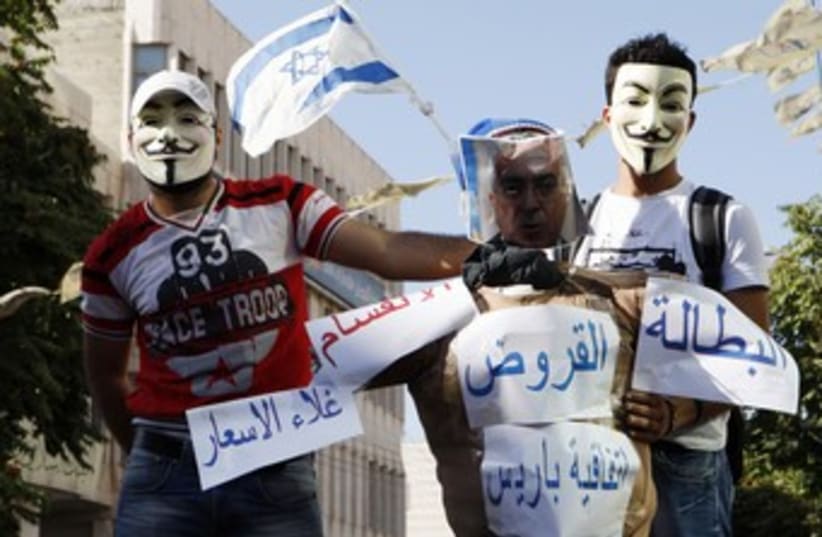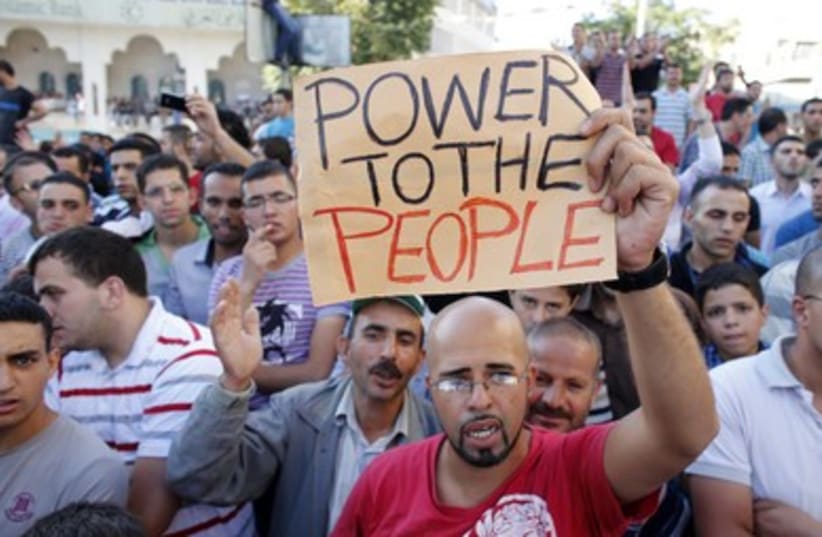
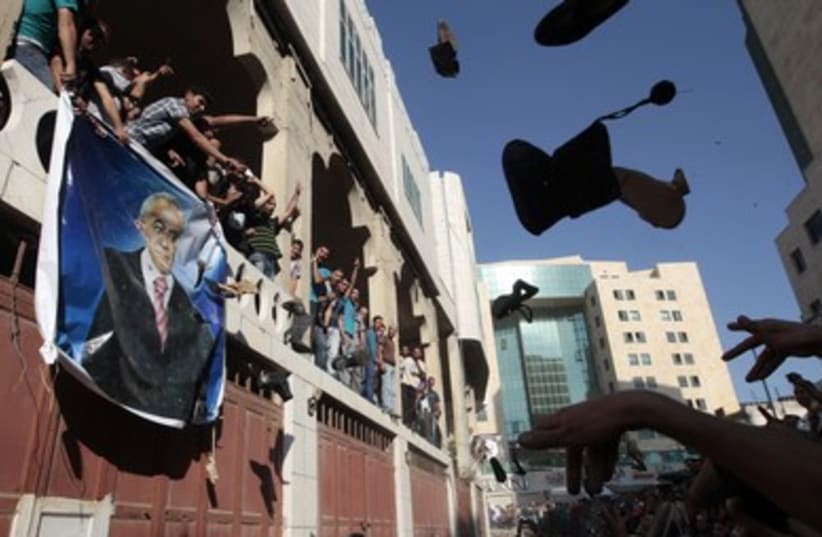
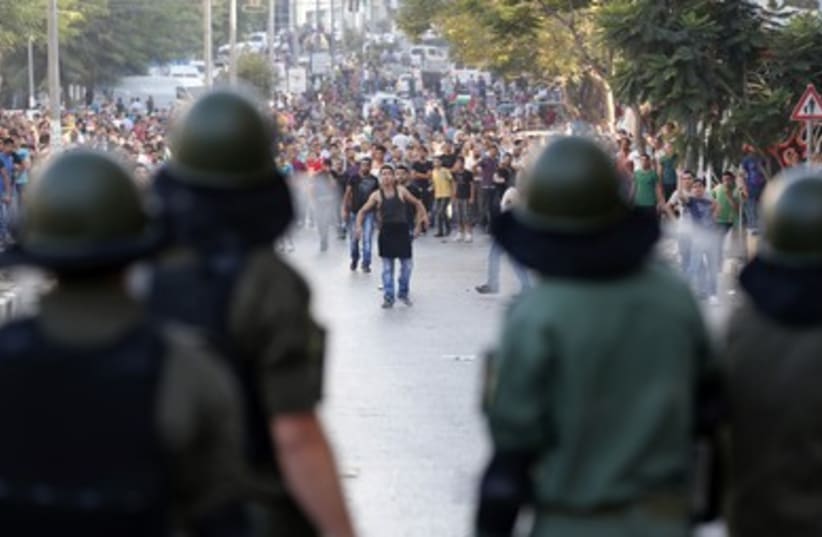
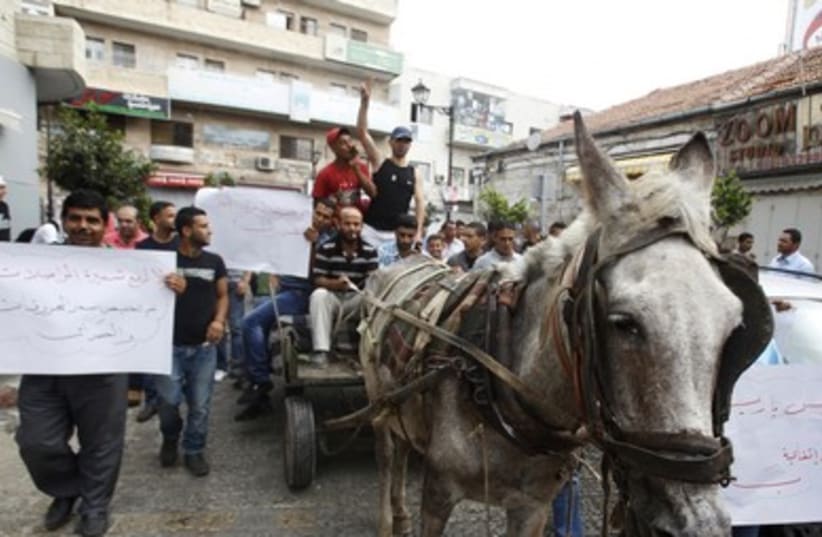
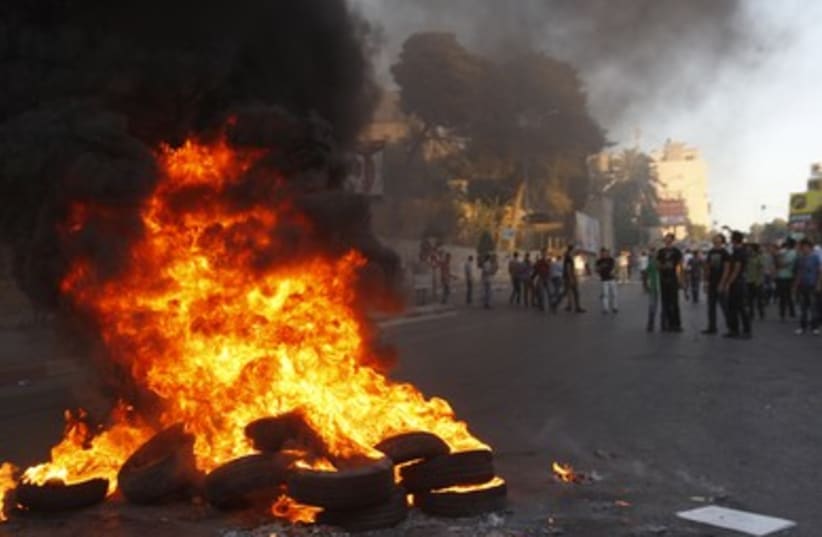

The violence, which was triggered by a recent rise in the price of fuel and basic goods, was the worst since the establishment of the PA in 1994.The PA leadership instructed its security force to avoid confrontations with the protesters to prevent a further escalation. But in some cases, policemen were forced to use live ammunition and tear gas to disperse stone-throwers. Some PA officials in Ramallah expressed deep concern over the escalating protests and warned that the security forces would not allow demonstrators to damage public and private properties.A Palestinian news agency affiliated with Hamas claimed that top PA officials were considering leaving the West Bank to Jordan and other countries out of fear for their lives.The worst violence erupted in Hebron, where dozens of protesters hurled stones at the municipality offices and a fire station. The protesters also attacked a number of shops in the center of the city, causing extensive damage.Majdi Salaymeh, head of the workers union at Hebron Municipality, condemned the attack, saying it only served the interests of "Israeli occupation." He said that the men who attacked the municipality were carrying out the "plots of Israeli occupation." Salaymeh praised other Palestinians who intervened to stop the attack with the help of the security forces.Hebron governor Kamel Hmeid said that peaceful demonstrations were permitted and promised that the security forces would not act against the protesters.However, he pointed out, the security forces were forced to intervene after municipality workers feared for their lives. Hmeid said that some of the attackers had threatened to kill the workers and set the municipality on fire.Later, hundreds of protesters attacked a police station with stones during another demonstration in the center of Hebron. The violence in Hebron came as public transportation workers observed a one day strike in the West Bank.Many schools and universities were shut because of the strike.Protesters blocked the main entrances to Ramallah with burning tires, forcing residents to use alternative routes to reach their destination.Dozens of angry protesters staged a sit-in strike in the center of Ramallah and called for firing Prime Minister Salam Fayyad. The protesters also shouted slogans calling on the PA to reduce the price of fuel and basic goods.The protesters vowed to continue their campaign until all their demands are met.Similar protests took place in Jenin, Tulkarm, Bethlehem, Jericho and Nablus.In Bethlehem, eyewitnesses said that dozens of residents attacked taxi drivers who blocked one of the main entrances to the city. The two sides hurled stones at each other before they were dispersed by anti-riot policemen."We are here to protest against the increase in prices of fuel and food," said bus driver Amjad Saleh. "The people in the government are imposing high taxes on us while they are sitting at home earning thousands of Shekels a month. This is corruption."Taxi driver Samir Obeidat said that he and his colleagues were determined to continue their protest until Fayyad is gone. "If the Palestinian government is not able to pay salaries and solve the economic crisis, then it should go home," he added.In Nablus, policemen fired into the air as hundreds of stone-throwers attacked a local security installation. Eyewitnesses said that clashes between PA policemen and protesters also erupted in various parts of the city and nearby refugee camps.Nablus Mayor Adli Yaish was lightly injured during the clashes, a Palestinian journalist reported. He said that in the evening Palestinian policemen and protesters exchanged gunfire in the Old City of Nablus. No casualties were reported.The General Union of Palestinian Workers warned against exploiting the protests to carry out acts of vandalism. The union said that it was not responsible for the scenes of violence that erupted in several areas in the West Bank."We are opposed to blocking roads, throwing stones at passersby, assaulting municipalities and police stations," the union emphasized in a statement. "We are against any acts of vandalism and we are not responsible for them."Meanwhile, Azzam al-Ahmed, a senior Fatah official and close aide to PA President Mahmoud Abbas, denied that his faction was behind the anti-Fayyad protests in the West Bank.Some Palestinians had claimed that Abbas's Fatah faction was encouraging its supporters to demonstrate against Fayyad to pave the way for his dismissal.Ahmed said he was also opposed to peaceful protests in the West Bank "while it was still under Israeli occupation." Adnan Damiri, spokesman for the PA security forces, voiced concern over the escalating protests. He said that freedom of expression and protests do not mean that people could spread chaos and lawlessness."We don't want a confrontation with the demonstrators," Damiri explained. "We don't want to politicize the crisis."
